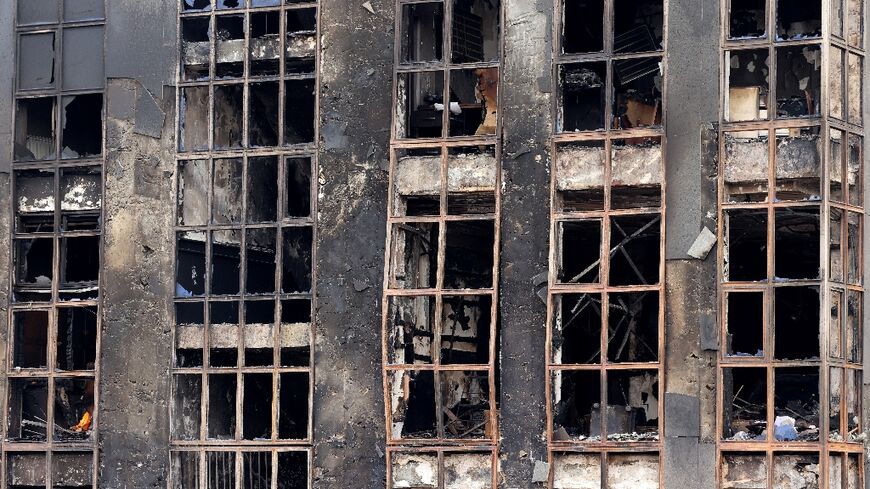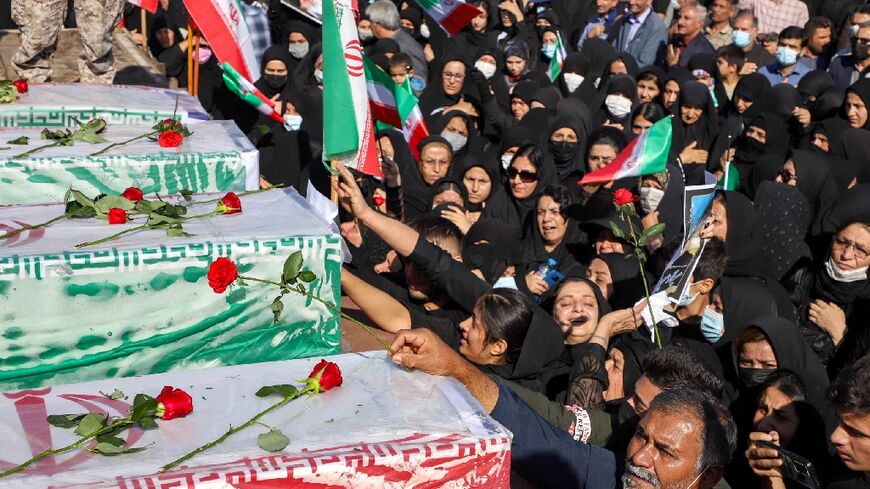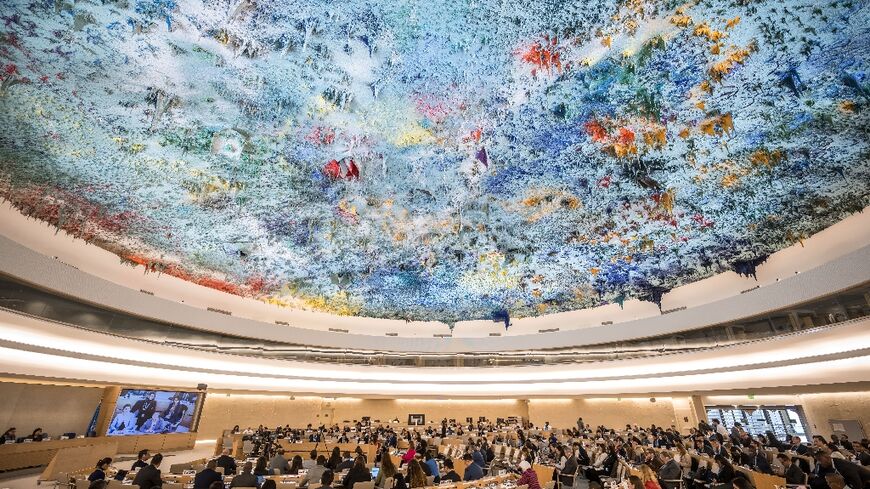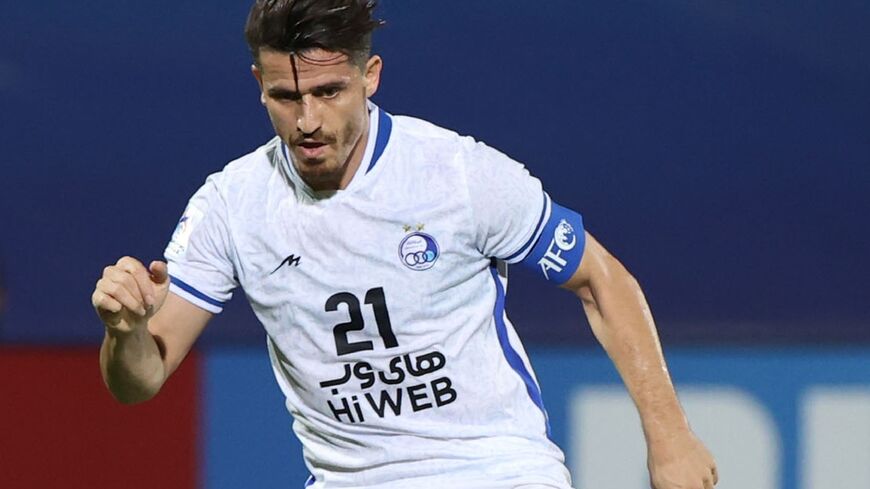UN rights council orders probe of Iran crackdown on protests
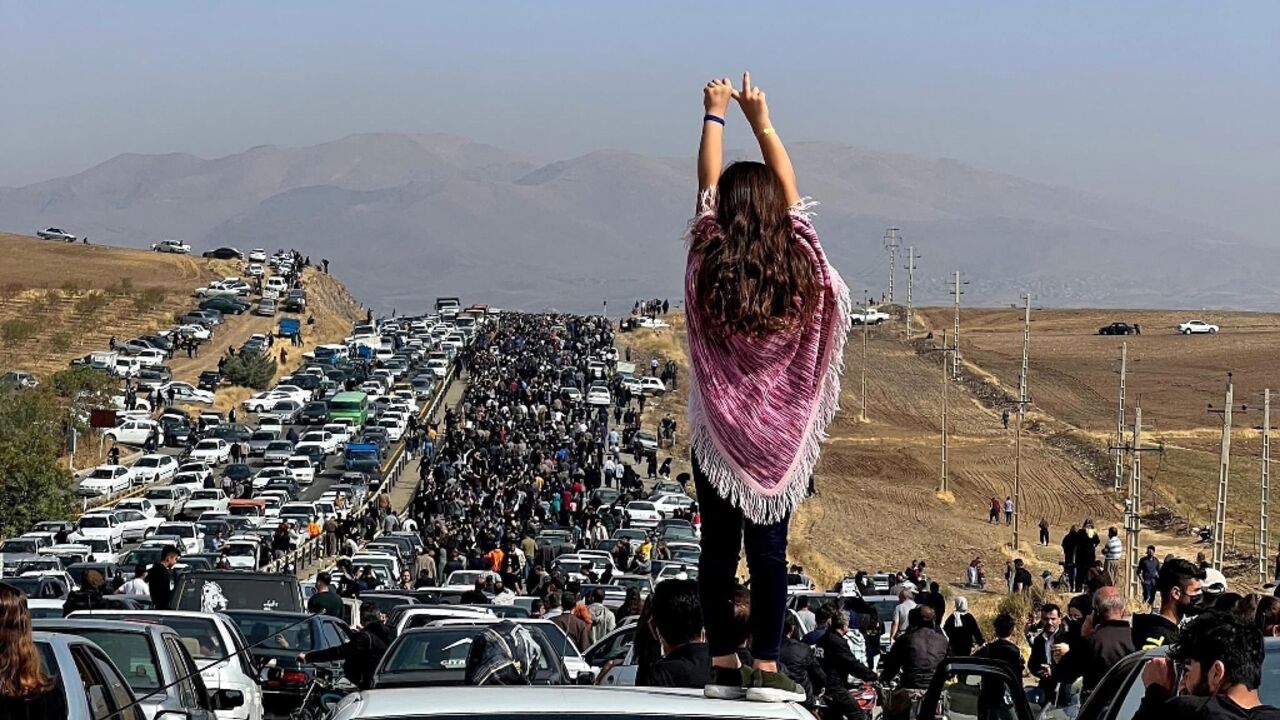
The United Nations Human Rights Council on Thursday condemned Iran's repression of peaceful demonstrators following the death of Mahsa Amini, and voted to create a high-level investigation into the deadly crackdown.
Despite heavy lobbying by Tehran and a last-minute effort by China to undercut the resolution, a broader-than-expected majority of the 47-member council backed launching a probe of Iran's response to the ongoing protests.
Thunderous applause erupted when the resolution passed with 25 votes in favour, 16 abstaining and only six countries -- Armenia, China, Cuba, Eritrea, Pakistan and Venezuela -- opposed.
US Secretary of State Antony Blinken hailed the vote, saying it showed the top UN rights body "recognises the gravity of the situation in Iran."
"The fact-finding mission established today will help ensure that those engaged in the ongoing violent suppression of Iranian people are identified and their actions documented," he said in a statement.
The vote came at the end of an urgent session requested by Germany and Iceland with the backing of 50 countries to discuss the situation in Iran, rocked by two months of protests.
Those demonstrations were sparked by the death in custody of 22-year-old Amini, after she was arrested for an alleged breach of the country's strict dress rules for women based on Islamic sharia law.
- Footballer arrested -
Iranian authorities have grown increasingly heavy-handed in their response to the demonstrations as they have spread across the country and swelled into a broad movement against the theocracy that has ruled Iran since 1979.
During Thursday's session, UN rights chief Volker Turk insisted that "the unnecessary and disproportionate use of force must come to an end."
Turk, who told reporters he had offered to visit Iran but had received no response from Tehran, said more than 300 people had been killed since Amini's death.
Norway-based group Iran Human Rights has put the toll above 400, including more than 50 children.
Around 14,000 people, including children, had been arrested over the protests, he said, describing this as "a staggering number", and decried the fact that at least six death sentences had been handed down to demonstrators.
Among those arrested have been a number of celebrities who have expressed support for the protesters, including Iranian national team footballer Voria Ghafouri, arrested on Thursday for "anti-state propaganda".
- 'Impunity prevents justice' -
A long line of Western diplomats took the floor in Geneva on Thursday to denounce the crackdown in Iran.
German Foreign Minister Annalena Baerbock called on all countries to back the independent international fact-finding mission to probe all abuses connected with the ongoing protests, to ensure "those responsible can be held to account".
"Impunity prevents justice. Justice for sisters, sons, mothers. They have names. Jina, Abolfazl, Minoo," she said, listing some of the many killed.
She told reporters that the investigation would collect evidence towards holding perpetrators to account -- although it remains unclear under which jurisdiction they would be tried.
"If we don't collect the evidence today... justice will never come to the victims," Baerbock said.
Icelandic Foreign Minister Thordis Kolbrun Reykfjord Gylfadottir agreed, telling reporters that the council vote was "about respecting, protecting and fulfilling human rights and fundamental freedoms."
Dozens of people protested outside the UN in Geneva, waving the flags used in Iran prior to the 1979 revolution, amid pictures of alleged victims of the Iranian regime.
The organisers of that demonstration, the People's Mojahedin Organization of Iran, hailed the Thursday's vote as "a positive and important step," insisting the "culture of impunity must end".
- 'Historic' -
Rights groups also celebrated the vote, with Amnesty International describing it as "historic", while Human Rights Watch said it was "a welcome step towards accountability."
Iran however denounced the Western countries behind Thursday's meeting.
Europe and the United States "lack the moral credibility to preach... on human rights", said Khadijeh Karimi, Iran's deputy of the vice president for women and family affairs.
"Reducing the common cause of human rights to a tool for political purposes of specific groups of Western countries is appalling and disgraceful," she added.
Iran received backing from some countries, with Pakistan, Venezuela and others decrying growing politicisation in the council, and China's ambassador Chen Xu warning against "turning human rights into a tool to intervene into other countries' internal affairs".
China also put in a last-minute bid to change the text of Thursday's resolution, asking that the request to establish an investigation be removed. Only six countries supported that effort.


